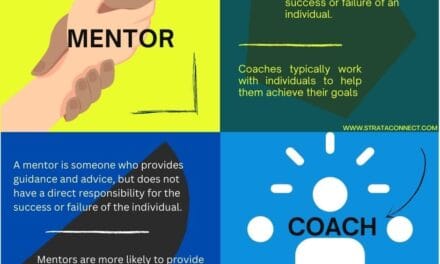
Skills shortages will require leaders to invest in workforce development, while ethical leadership and sustainability will become critical to business success. The future of leadership isn’t just about managing teams – it’s about empowering people, leveraging technology, and making a meaningful impact. Are you ready?
1️⃣ Adaptive Leadership: Thriving in Uncertainty
The future is unpredictable. Leaders can no longer rely on rigid, top-down structures or traditional decision-making models. Instead, the most effective leaders in 2025 will be those who embrace adaptive leadership—the ability to pivot, problem-solve, and lead with agility.
➤Why Adaptive Leadership is Crucial:
✔️ The speed of change is accelerating—leaders must be comfortable making quick, informed decisions.
✔️ Disruptions (economic, technological, environmental) will be ongoing—flexibility will be a key leadership trait.
✔️ Employees expect empowerment—authoritative leadership is giving way to collaborative leadership.
🔹 How to Build Adaptive Leadership Skills:
✅ Develop a growth mindset—see change as an opportunity, not a threat.
✅ Strengthen decision-making under uncertainty—use data, but also trust intuition.
✅ Foster a culture of innovation—encourage teams to experiment and iterate.
📌 Action for Leaders: Ask yourself—are you leading in a way that allows for quick shifts in strategy? If not, it’s time to rethink your approach.
2️⃣ The Prioritisation of Employee Well-Being
Workplace mental health is no longer a side conversation—it’s central to leadership. Burnout, stress, and job dissatisfaction are major challenges that impact productivity, retention, and overall company culture. Leaders in 2025 will be expected to prioritize employee well-being just as much as business performance.
➤What’s Changing?
✔️ Mental health support is now a core business function, not just an HR issue.
✔️ Work-life balance is non-negotiable—flexibility in work arrangements is key.
✔️ Employee engagement directly impacts retention and profitability—leaders must cultivate a people-first culture.
🔹 How Leaders Can Support Employee Well-Being:
✅ Encourage open conversations about mental health—reduce stigma and create a safe space.
✅ Offer flexible work policies—hybrid models, mental health days, and customized schedules.
✅ Recognise and reward contributions—appreciation drives engagement and job satisfaction.
📌 Action for Leaders: Does your leadership style support or hinder employee well-being? The leaders of 2025 will be the ones who build healthy, high-performing teams.
3️⃣ Addressing Skills Shortages with Proactive Workforce Planning
One of the biggest challenges in leadership will be filling critical skill gaps. Traditional hiring methods are proving insufficient as new skills are required faster than ever.
➤Key Challenges Leaders Must Address:
✔️ New skills are emerging faster than training programs can keep up.
✔️ Certain industries struggle with talent shortages due to gender imbalances.
✔️ Retention is just as critical as hiring—keeping skilled employees is a leadership priority.
🔹 How Leaders Can Overcome Skills Shortages:
✅ Invest in upskilling existing employees—don’t just look for external hires.
✅ Create leadership pipelines—develop talent internally for future leadership roles.
✅ Use AI for skills matching and workforce planning—technology can streamline hiring.
📌 Action for Leaders: Do you have a long-term talent strategy? The leaders of 2025 will need to develop people, not just hire them.
4️⃣ AI & Automation Will Redefine Leadership Roles
Artificial intelligence (AI) and automation are reshaping industries, and leadership is no exception. The role of leaders will shift from overseeing manual processes to leveraging AI-driven insights for better decision-making.
➤How AI Will Influence Leadership:
✔️ AI will handle data analysis, allowing leaders to focus on strategy.
✔️ Automation will replace repetitive tasks, freeing up time for human-centered leadership.
✔️ AI-driven insights will improve team management and decision-making.
🔹 How Leaders Can Stay Ahead:
✅ Develop digital literacy—leaders don’t need to be AI experts, but they must understand its impact.
✅ Balance automation with human connection—use AI for efficiency but maintain emotional intelligence.
✅ Ensure ethical AI use—leaders must navigate privacy concerns and bias in AI systems.
📌 Action for Leaders: Are you embracing AI as a leadership tool, or resisting it? The most successful leaders in 2025 will integrate technology without losing the human touch.
5️⃣ Ethical Leadership & Purpose-Driven Business Will Take Centre Stage
Leaders are now expected to lead with purpose, not just profits. Employees and consumers alike are holding businesses accountable for social, environmental, and ethical standards.
➤Key Leadership Trends in Ethics & Purpose:
✔️ Transparency in decision-making—employees and customers expect honesty.
✔️ Commitment to diversity and inclusion—a diverse workforce drives innovation.
✔️ Sustainability will influence leadership decisions—businesses must align with environmental goals.
🔹 How Leaders Can Lead with Purpose:
✅ Communicate a clear mission—employees want to feel connected to a bigger goal.
✅ Embed sustainability into business strategy—go beyond surface-level commitments.
✅ Foster inclusive workplaces—diverse teams drive stronger results.
📌 Action for Leaders: What does your leadership stand for beyond profits? The leaders of 2025 will need to lead with impact, not just authority.
Final Thoughts: The Leaders Who Will Thrive in 2025
Leadership in 2025 won’t be about control—it will be about empowerment. The most successful leaders will be:
✅ Adaptive and open to change
✅ Committed to employee well-being
✅ Investing in people and skills development
✅ Leveraging AI and technology wisely
✅ Leading with ethics, purpose, and inclusivity
➤Are you ready for the leadership challenges ahead? The future is already here – let’s make sure you’re prepared.
📩 Let’s talk. If you want to develop the leadership skills needed to thrive in 2025 and beyond, I can help. 🤙https://ianb.coach/calendar




